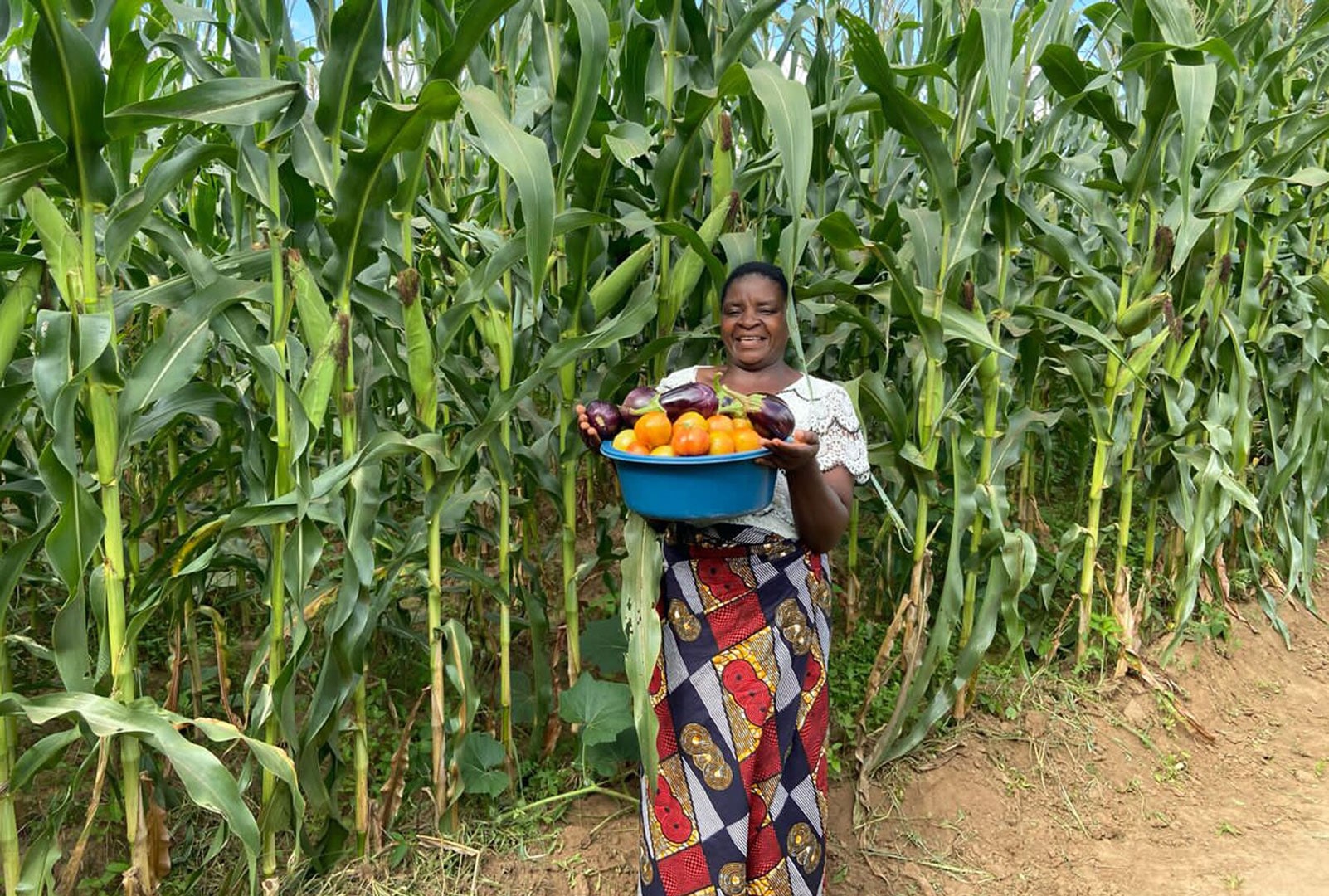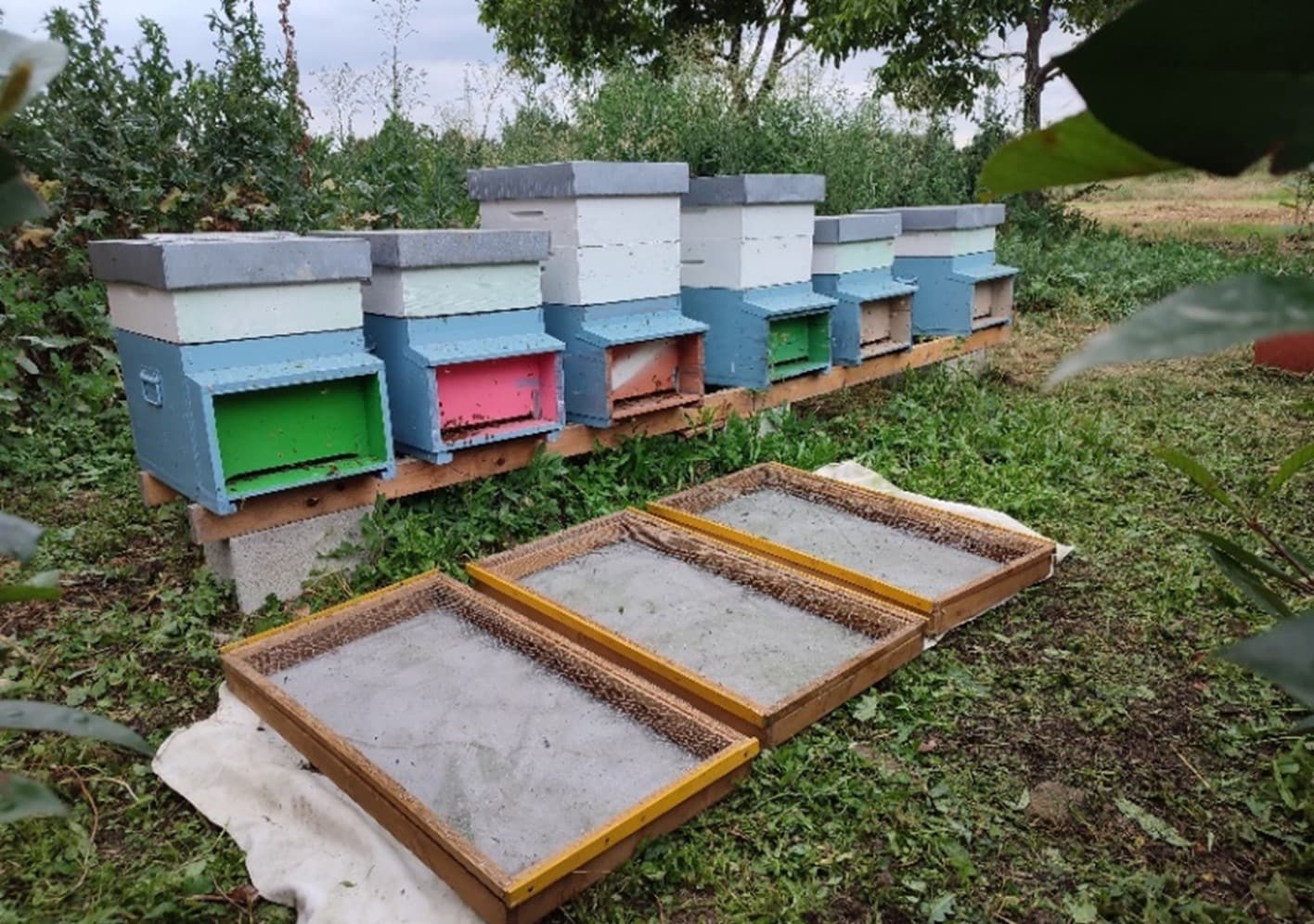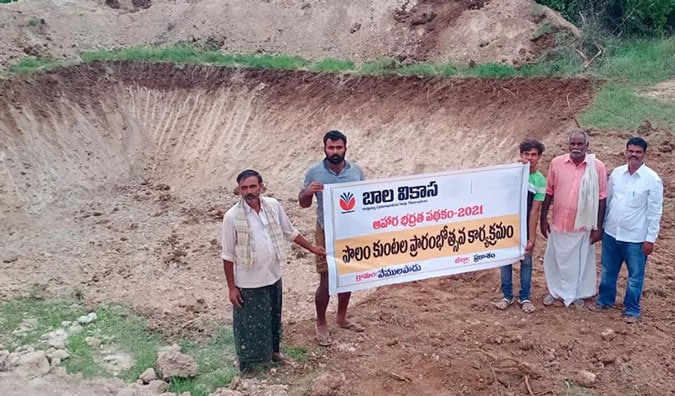Healthy soils as the basis of resilient farming
Soil health is the foundation of productive and high-quality farming, enabling farmers to maintain fertile land and viable crops over the long term. Healthy soils regulate water, store nutrients, support biodiversity, and provide resilience against drought and erosion—all of which are critical for stable yields and farmers’ livelihoods. In Malawi, where agriculture is the backbone of the economy and a source of income for the majority of rural households, soil fertility is key. Continuous cultivation, limited access to fertilizers and other essential inputs, and naturally acidic soils have led to declining productivity and increased vulnerability to climate change¹. As a result, there is a clear need—and a timely opportunity—in Malawi to showcase how soil health interventions can both strengthen farming systems and build greater resilience within communities.
The pilot: An integrated approach to soil health
In 2022, in collaboration with one of our leaf suppliers, we launched a three-year soil health pilot project focused on tobacco-growing regions across Malawi. It is guided by years of implementing our Good Agricultural Practices (GAP) framework, with the aim of forming a pathway towards implementing holistic regenerative agriculture practices.
The project involves over 150 farmers, jointly cultivating 300 hectares—around 1 percent of our farmer base in Malawi—with the goal of applying a comprehensive set of soil improvement solutions. These solutions include incorporating crop residues into the soil, introducing mechanized land preparation methods to replace labor-intensive hoeing, applying soil conditioners such as dolomite and micronized lime to address soil acidity, using compost enriched with biological products to boost soil fertility and biodiversity, and rotating crops to restore nitrogen and interrupt pest development cycles. Together, these practices aim to improve two critical soil parameters—pH and organic matter—which are essential for long-term productivity.
Creating value through sustainable farming systems
The soil health project provides important business and social benefits. Healthier soils require less fertilizer, lowering long-term costs. By improving soil fertility and water retention, farms become more resilient to drought and other climate impacts, strengthening security of supply and protecting future yields. Mechanization lightens farmers’ workload, improves efficiency, and supports labor conditions. Importantly, all participating farmers have received tailored training sessions, both theoretical and practical, with materials designed to guide implementation and showcase how modern agricultural methods can contribute to their improved livelihoods.
Although the full effect of the pilot is still to be evaluated, the data we have received so far revealed encouraging crop performance versus the same indicators where farmers were following traditional farming practices.
Implementing soil improvements inevitably involves additional costs. Showcasing the benefit results in farmers more promptly adopting these methods. We also covered all pilot-related costs jointly with our leaf supplier. This enabled us to monitor and gather reliable data to verify soil parameters and yields’ quality over several crop cycles. The data we have gathered helped us to demonstrate long-term value and profitability to farmers, and to promote adoption.
Looking ahead: From pilot to wider impact
This project is more than a technical intervention; it’s a step towards our broader ambition of integrating regenerative agriculture practices into our supply chain. Healthy soils can capture an estimated 0.4 to 1.2 tons of carbon per hectare per year2. As such, our efforts in this initiative directly contribute to our climate strategy, including our Science Based Targets and ambition to reach net-zero emissions by 2040. Equally important, the project generates significant co-benefits—restoring biodiversity, improving soil ecosystems, and enhancing farmer livelihoods through improved productivity.
Our long-term ambition is to expand this project beyond the pilot farms and, eventually, into other markets where soil degradation poses challenges. By working directly with farmers, and our supply chain partners, we are demonstrating that soil health interventions can generate environmental, social, and business value. This is how pilot projects can evolve into scalable solutions, helping us move towards regenerative agriculture and a sustainable future.
2 IPCC, Climate Change and Land Report, 2019: estimates of soil carbon sequestration potential.




